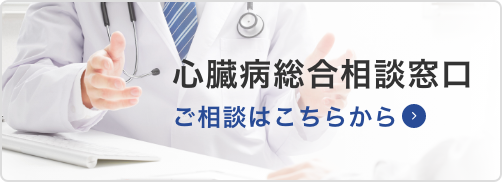外来のご案内
診療を希望される外国人の方へ
医療渡航支援企業について
当院では、原則として認証医療渡航支援企業(AMTAC)にコーディネーター業務の仲介を依頼しています。
AMTACは、日本で医療サービスを受けるために訪日する受診者の受け入れについて、質の高い支援サービスを提供できることを一般社団法人Medical Excellence Japan(MEJ)から認証された企業です。
コーディネート費用は患者さん負担ですが、円滑で安全な診療を行うためにご理解いただきますようお願いします。
連絡先
株式会社JTB ジャパン・メディカル&ヘルスツーリズムセンター(JMHC)
電話番号:+81-3-5290-1630
問い合わせ:https://j-medical-healthcare.com/mej_contact/
日本エマージェンシーアシスタンス株式会社
電話番号:+81-3-3811-8600
問い合わせ:https://maj.emergency.co.jp/
対応言語:日本語、中国語、英語、ロシア語、韓国語、ベトナム語
ブリジアン株式会社
電話番号:+81-3-5809-3026
問い合わせ:https://www.brisian.co.jp/contact/index.html
医信株式会社
電話番号:+81-3-5829-8785
問い合わせ:info@i-shin.co.jp
株式会社アイセルネットワークス
電話番号:+81-3-6268-0261
問い合わせ:https://www.i-cell.co.jp/
※認証医療渡航支援企業(AMTAC)
https://medicalexcellencejapan.org/jp/business/certification/amtac/
注意事項
- 認証医療渡航支援企業ならびに医療通訳を利用することにご同意いただけない場合。
- 診療の内容が当院の専門外である場合。
- 診療に必要な資料(医療情報、検査データ、画像データなど)をご用意頂けない場合。(医療相談では資料は不要です)
- 医療過誤、医療訴訟などの問題についてのご相談の場合。
- 過去に行われた治療が正しかったかの確認の場合。
- 現在の主治医に対しての不満の場合。
- お亡くなりになられた患者さんについてのご相談の場合。
- その他、当院で検討を行い受け入れが困難と判断された場合。
海外在住の方の受け入れ
外国人患者さんの受入の流れ

患者さんの希望と検査・治療内容により判断いたします。
認証医療渡航支援企業を介して手続きを行っていただきます。
医療渡航(海外在住の方が来日して診療を希望する場合)
費用
検査・治療の内容とそれにかかる期間をもとに概算を出します。
別途、医療通訳費用がかかります。
提出資料
- 現地医療機関での医療情報
- 検査データ
- 画像データ(CD-R)
資料は返却しません。
注意点
- 検討の結果、当院での診療受け入れができないことがあります。
- 受診できない場合であっても、患者さんの現在・今後について一切の責任を負うことはできません。
- 録音・録画はご遠慮ください。
オンラインセカンドオピニオン
(来日困難な海外在住の方が、オンラインでセカンドオピニオンを希望する場合)
目的
来日が困難な海外在住の方に対して行うセカンドオピニオンです。
症状や診断、治療に関する相談に対して、当院の意見を提供します。検査や治療、処方は行いません。
費用
60分 55,000円(税込)
別途、医療通訳費用がかかります。
提出資料
- 現地医療機関での医療情報
- 検査データ
- 画像データ(CD-R)
資料は返却しません。
注意点
- 検討の結果、当院での診療受け入れができないことがあります。
- 受診できない場合であっても、患者さんの現在・今後について一切の責任を負うことはできません。
- 録音・録画はご遠慮ください。
- レポートは作成しません。
関連ページ
医療渡航支援企業について
当院では、原則として認証医療渡航支援企業(AMTAC)にコーディネーター業務の仲介を依頼しています。
AMTACは、日本で医療サービスを受けるために訪日する受診者の受け入れについて、質の高い支援サービスを提供できることを一般社団法人Medical Excellence Japan(MEJ)から認証された企業です。
コーディネート費用は患者さん負担ですが、円滑で安全な診療を行うためにご理解いただきますようお願いします。
連絡先
株式会社JTB ジャパン・メディカル&ヘルスツーリズムセンター(JMHC)
電話番号:+81-3-5290-1630
問い合わせ:https://j-medical-healthcare.com/mej_contact/
日本エマージェンシーアシスタンス株式会社
電話番号:+81-3-3811-8600
問い合わせ:https://maj.emergency.co.jp/
対応言語:日本語、中国語、英語、ロシア語、韓国語、ベトナム語
ブリジアン株式会社
電話番号:+81-3-5809-3026
問い合わせ:https://www.brisian.co.jp/contact/index.html
医信株式会社
電話番号:+81-3-5829-8785
問い合わせ:info@i-shin.co.jp
株式会社アイセルネットワークス
電話番号:+81-3-6268-0261
問い合わせ:https://www.i-cell.co.jp/
※認証医療渡航支援企業(AMTAC)
https://medicalexcellencejapan.org/jp/business/certification/amtac/
注意事項
- 認証医療渡航支援企業ならびに医療通訳を利用することにご同意いただけない場合。
- 診療の内容が当院の専門外である場合。
- 診療に必要な資料(医療情報、検査データ、画像データなど)をご用意頂けない場合。(医療相談では資料は不要です)
- 医療過誤、医療訴訟などの問題についてのご相談の場合。
- 過去に行われた治療が正しかったかの確認の場合。
- 現在の主治医に対しての不満の場合。
- お亡くなりになられた患者さんについてのご相談の場合。
- その他、当院で検討を行い受け入れが困難と判断された場合。
日本のマイナンバーカード
または保険資格証をお持ちの場合
日本の公的医療保険に加入している外国人患者さんが受診する際は、下記のものをお持ちください。
- 日本のマイナンバーカードまたは保険資格証、(お持ちの方は)医療費受給者証
- 写真付きの身分証明書(パスポートまたは在留カード)
注意事項・医療通訳について
- 日本語でのコミュニケーションに制限がある患者さんに対しては、医療通訳者同行の上でお越しください。
- 当院では家族あるいは友人の通訳を原則として認めていません。当院の医療を安全かつ安心して提供するために、通訳技能と医学知識を用いて相互理解を支援する医療通訳の利用をお願いしています。
- ご自身での手配が困難な場合は当院で手配いたしますが、その際は所定の費用を頂きます。
なお、医療通訳者の手配が困難な場合は、遠隔医療通訳(ビデオあるいは電話)で対応させて頂きます。
日本のマイナンバーカード
または保険資格証をお持ちでない場合
日本の公的医療保険に加入していない外国人患者さんが当院の診療を希望する場合は、認証医療渡航支援企業(AMTAC)に連絡をお願いします。


